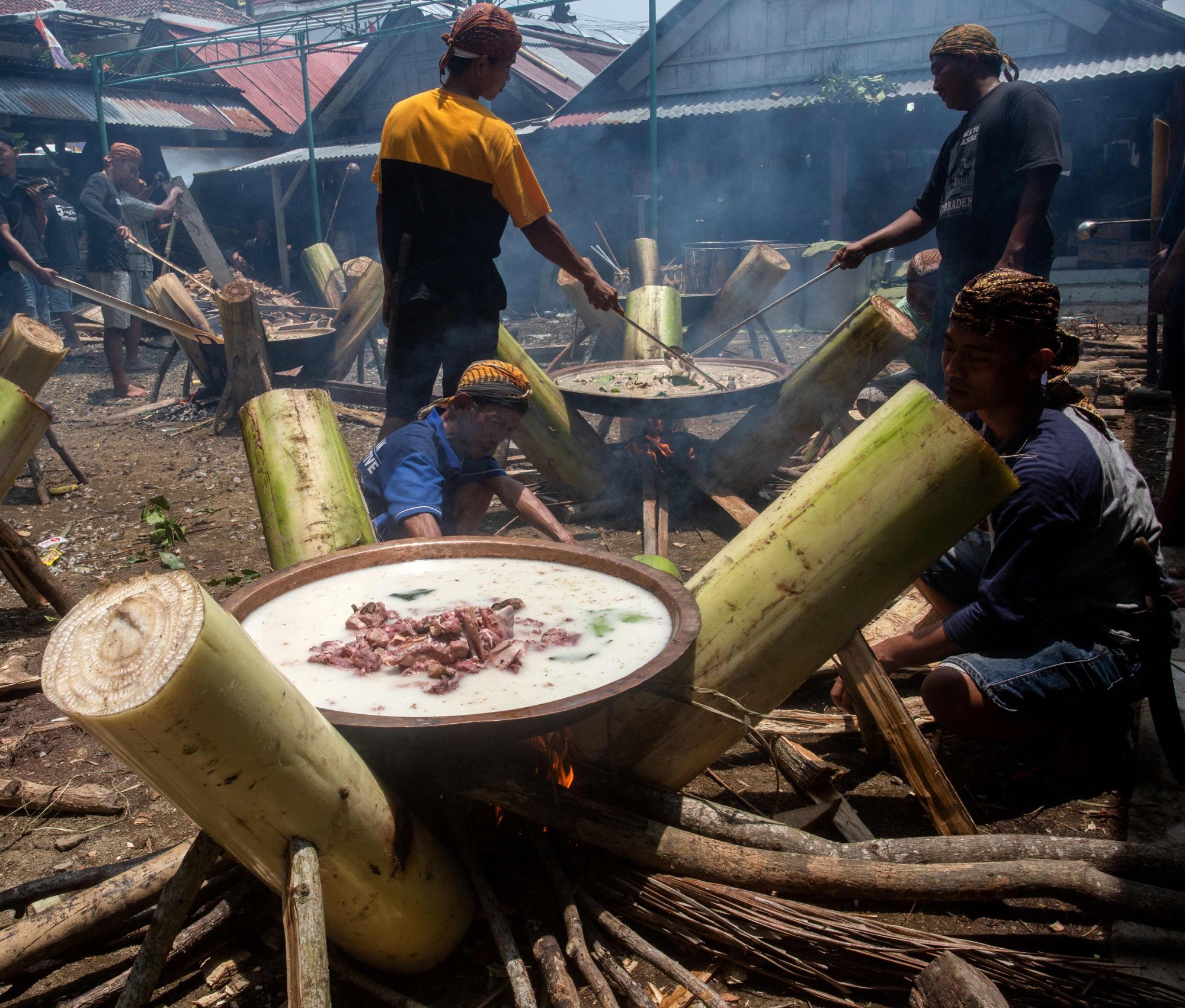Indonesia is the world’s ‘most-flourishing’ country. What does that mean?
Harvard researchers claim first-ever study measures factors that go beyond wealth, and is more encompassing than usual world happiness surveys

Indonesia has been ranked as the world’s “most-flourishing” country, according to a first-ever study measuring such an indicator, based on factors such as high life satisfaction, strong social relations and religious participation.
The Global Flourishing Study (GFS), written by researchers in Harvard, Baylor University and Gallup, asked more than 200,000 respondents in 23 countries and territories about five aspects of their life: happiness and life satisfaction, mental and physical health, meaning and purpose, character and virtue, and close social relationships.
Conducted between 2022 and 24, it aims to expand the scope of the annual World Happiness Report, which often features Nordic nations as the world’s happiest countries. But that barometer does not capture the “fullness of well-being”, the scientists behind GFS – Byron Johnson, Tyler J. VanderWeele and Brendan Case – wrote in an op-ed in The New York Times on April 30.
“These rankings reinforce a key supposition of our globalised political and economic order: poor countries are unhappy because they are poor, and wealth is a critical precondition for individual and societal flourishing,” the scientists wrote.
“The three of us conceive of happiness, or flourishing, more broadly: as a state of affairs in which all aspects of your life are relatively good, including the social environments in which you live.”
In all five aspects, Indonesia scored the highest flourishing points with 8.47, followed by Mexico and the Philippines, while Japan displayed the lowest level of flourishing with 5.93.
Hong Kong and China were ranked at 16th and 17th, respectively, slightly better at flourishing than Germany, Sweden, Australia and the United Kingdom, but behind the United States. At fourth place, Israel was the only developed nation to have made it into the ranking’s top five.
“Indonesia is often contrasted unfavourably with Japan in discussions of international development, cited as an example of the so-called middle-income trap, in which economic growth stalls before reaching high-income levels … but our study suggests that the focus on economic growth tells only part of the story,” the scientists wrote.
The study, published in scientific journal Nature last week, also found that flourishing mostly started later in life, as respondents aged 18 to 49 reported low-level of well-being.
However, the trend varies by country. In Hong Kong and Japan, the pattern is J-shaped, “with younger individuals, on average, flourishing slightly more than their middle-aged counterparts but less than older ones,” the study said.
In Indonesia and China, however, “middle-aged individuals are, on average, flourishing better than their younger and older counterparts,” according to the study.
The study also concluded that participation in group events, particularly attending religious service and involvement in civic activities, “is generally associated with greater flourishing” and that it can boost “an individual’s sense of meaning and purpose”.
Social ties above all
For sociologist Rakhmat Hidayat of Jakarta State University, the study’s finding “is not shocking” as material gain is not “a significant matter” for Indonesian society.
“For Indonesians, happiness is related to how they can gather, socialise and bond with each other, that’s what makes their social ties strong,” Rakhmat said.
According to Rakhmat, strong social relationships help Indonesians address their financial hardship. In every community feasts and celebrations, as well as funerals, Indonesians generally donate whatever they can – be it money, time or energy – to help make the events happen.
“For Indonesians, being rich is not everything. They are taught about the values of collectivity, solidarity, and these are more important than other values,” he said.
Last year, for the seventh time in a row, Indonesia was named the most generous country by the World Giving Index, compiled by British charity Charities Aid Foundation.
In this year’s World Happiness Report, published by Gallup, Indonesia also topped the generosity category, despite it being placed at 83rd out of 147 countries in the main happiness ranking.

Hastaning Sakti, a psychologist with the University of Diponegoro in Central Java, argued that Indonesians’ generosity and attempts at good deeds stem from their religious beliefs, “which recommend people to do good and be loving towards each other”.
Close to 90 per cent of Indonesians are Muslim, according to a the country’s statistics agency, BPS, last year.
Another cultural factor that could help explain why Indonesians flourished in the face of adversities is their practice of gratitude and acceptance, which is underlined by a well-known Javanese word narimo, or “to accept’’.
In their 2022 study entitled “Poor but Happy: Life Struggle and the Meaning of Happiness among the Poor in Yogyakarta,” Indonesian sociologists Lulu Husnul Muthia and Falikul Isbah wrote that many Javanese practised narimo as they believed that “there is nothing out of God’s will and control, so they only need to accept the conditions. Accepting life as it is, rather than complaining about it, will allow them a peaceful life.”
However, Hastaning argued that this did not mean narimo practitioners “do not work hard” to better their lives.
“It means that when something happens, we accept it and we are not too insistent on pushing for the result we want. We take the time to build up our spirit, and try again later,” she said.
Rakhmat suggested that the Indonesian government use the GFS data to develop “an education policy relating to building characters for schoolchildren and to promote a simple lifestyle instead of extravagant living” for officials.
“I hope that this study does not make Indonesian people arrogant. We should strive for a more decent life but there are things that make us stronger in everyday life, such as social ties and strong morals,” he said.
In their op-ed, the study’s authors urged developed nations to consider a scenario: “Might it even be possible for Sweden to ‘get to Indonesia’, in terms of restoring relationships and communities, a sense of meaning in life and a connection to the sacred, without sacrificing its hard-won health, wealth and stability?”